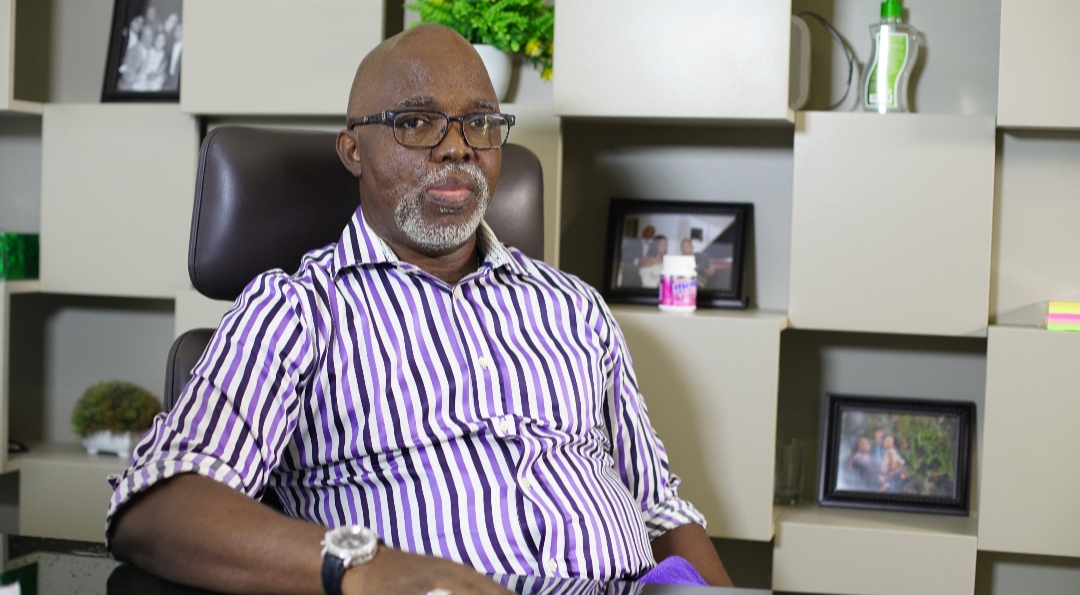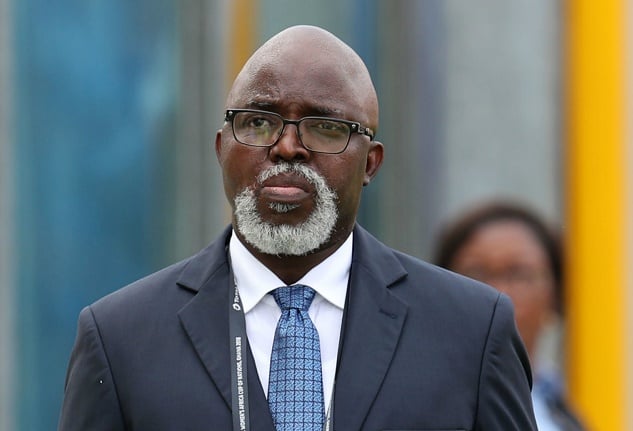Amaju Pinnick loses FIFA seat

The Confederation of African Football (CAF) recently held its 14th Extraordinary Congress in Cairo, Egypt, where key decisions were made regarding leadership and representation within the organization and on the FIFA Council. Several high-profile elections took place, resulting in both expected and surprising outcomes.
One of the most closely watched contests was the election for seats on the FIFA Council. Amaju Melvin Pinnick, the former president of the Nigeria Football Federation (NFF), narrowly missed retaining his seat, falling short by a single vote. Pinnick secured 28 votes, while Mauritania’s Ahmed Yahya and Djibouti’s Souleman Hassan Waberi each garnered 29 votes, earning them positions on the prestigious panel. Fouzi Lekjaa of Morocco led the voting with an impressive 49 votes, followed by Hany Abou Rida of Egypt and Djibrilla Hima Hamidou of Niger Republic, who both secured 35 votes.
In the women’s category, Kanizat Ibrahim from Comoros was elected as Africa’s representative on the FIFA Council, obtaining 30 votes. She surpassed former FIFA Council and IOC member Lydia Nsekera, who received 13 votes, and incumbent Isha Johansen, who managed only seven votes. Other candidates, including Andrew Kamanga (Zambia), Yacine Idriss Diallo (Côte d’Ivoire), and Augustin Senghor (Senegal), did not secure enough votes, while Benin Republic’s Mathurin De Chacus withdrew before the voting commenced.
In other significant developments, South African businessman and football administrator Patrice Motsepe was re-elected unopposed as the president of CAF for a second four-year term. Motsepe, who assumed office in 2021, has overseen financial growth within CAF, including a record $72 million profit from the 2023 Africa Cup of Nations (AFCON), which is 18 times more than the previous tournament in 2022. Despite these achievements, Motsepe acknowledged the need for further improvements, particularly in football infrastructure across Africa.
One of the notable highlights of the congress was the unopposed election of Cameroonian football legend Samuel Eto’o to CAF’s Executive Committee. Eto’o, who has been president of the Cameroon Football Federation (FECAFOOT) since 2021, initially faced challenges due to governance concerns but was later cleared by the Court of Arbitration for Sport (CAS). His election was warmly received by delegates, underscoring his continued influence in African football.
The newly elected and re-elected officials are expected to steer African football towards further development and stability. The composition of the FIFA Council now includes Patrice Motsepe (South Africa), Fouzi Lekjaa (Morocco), Hany Abou Rida (Egypt), Djibrilla Hima Hamidou (Niger Republic), Ahmed Yahya (Mauritania), Souleman Hassan Waberi (Djibouti), and Kanizat Ibrahim (Comoros) as the Women’s Representative.
The CAF Executive Committee also saw new appointments, including Samuel Eto’o (Cameroon), Wallace Karia (Tanzania), Sadhi Walid (North Africa), Mustapha Ishola Raji (Liberia), Kurt Edwin-Simeon Okraku (Ghana), Sobha Mohamed Ally Samir (Mauritius), Feizal Ismael Sidat (Mozambique), and Bestine Kazadi Ditabala (DR Congo) as the Female Representative.
These outcomes from the 14th CAF Extraordinary Congress reflect a focus on enhancing governance, promoting development, and ensuring financial stability within African football. With a blend of experienced and new leaders, the continent aims to build on recent successes and tackle remaining challenges in the years ahead.









